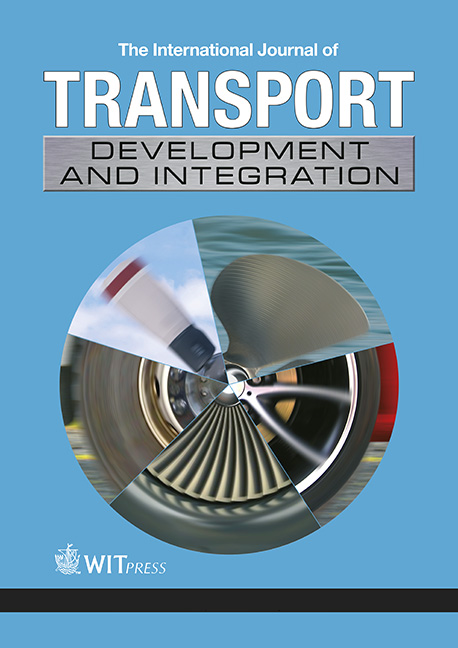Network design problem for risk reduction in transport system: a models specification
Price
Free (open access)
Volume
Volume 6 (2022), Issue 3
Pages
14
Page Range
283 - 297
Paper DOI
10.2495/TDI-V6-N3-283-297
Copyright
WIT Press
Author(s)
Antonino Vitetta
Abstract
With the occurrence of natural or anthropogenic events, which can cause damage to people, delayed in time, adequate actions must be implemented to evacuate the population from the areas at risk. In this context, the transport supply system must be adequately designed to facilitate rapid evacuation. This paper presents the design methodologies of transport networks in the presence of disasters. The design variables considered concern the direction of travel of the links and the regulation strategies to be adopted in the junctions. The objective function considers risk minimization in terms of user exposure. In the problem, the main constraint considered concerns the users’ behaviour. In fact, the configuration of the supply system can be optimized but it is necessary to consider that users adopt choice strategies that tend to minimize their disutility. Therefore, the best possible configuration must be found for all users (system optimum), considering that the choices of individual users are with maximum individual utility (user choice). The paper reports the main characteristics that a decision support system should have in terms of: general framework, model and resolution procedures. The decision support system can be used by the decisions that have to design the transport network through preventive actions or in real time.
Keywords
evacuation, risk reduction transport, network design problem.




